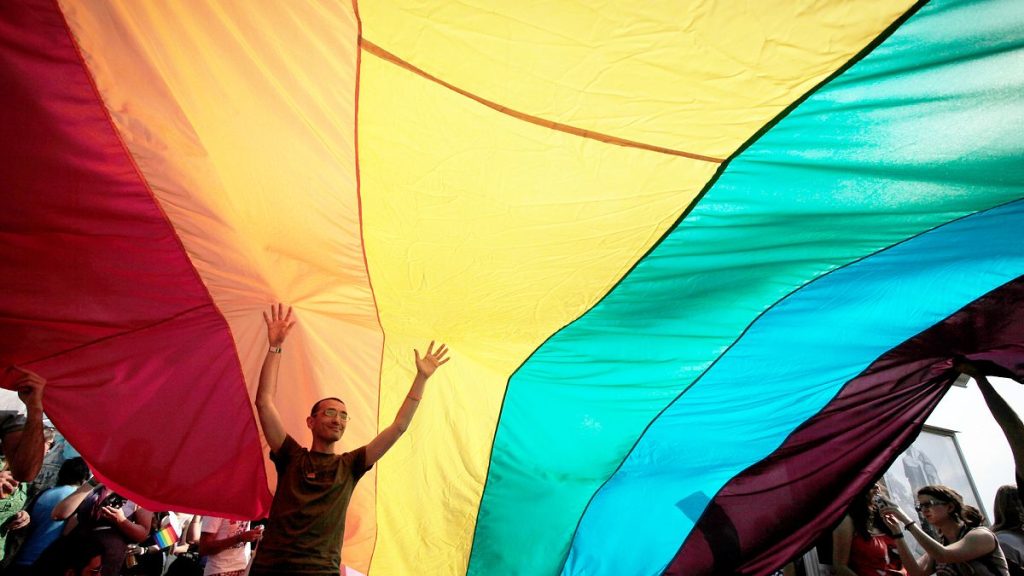The European Commission is considering legal action against Bulgaria after the country passed a law banning LGBTQ+ “propaganda” in schools. The bill, which prohibits promoting ideas related to non-traditional sexual orientation or gender identity, has sparked outrage among rights groups who see it as a violation of EU laws and values. The legislation was introduced by the far-right Vazrazhdane party and received support from mainstream political parties in Bulgaria. Critics argue that the law is a setback for LGBTQ+ rights and human dignity in the country and is inspired by Russian legislation that bans gay propaganda in schools.
NGO ILGA-Europe has called on the European Commission to condemn the Bulgarian law and put pressure on the government to reconsider it. The organization, along with other rights groups, believes that the legislation violates EU treaties and children’s rights to comprehensive sex education. They argue that Bulgaria is prioritizing Russian values over European values by adopting laws that discriminate against LGBTQ+ individuals. The European Commission has previously taken action against Hungary for similar legislation, withholding funds over rule of law violations.
The anti-LGBTQ+ law in Bulgaria has caused political turmoil in the country, which has seen multiple snap parliamentary elections in recent years. President Rumen Radev has approved the bill, despite calls for his veto from civil society groups. There are concerns that the law is being used as an electoral tool in the lead-up to the next parliamentary election in October. The European Commission has yet to comment on the law, but has stated its commitment to tackling discrimination and inequality faced by LGBTQ+ individuals.
Rights groups are urging the EU to freeze funds to Bulgaria in the fields of education and culture, including Erasmus+ funds. The European Commissioner for Education and Culture, who is from Bulgaria, and the GERB party, which supported the bill, may also face scrutiny. The European Commission’s stance on non-discrimination and support for LGBTQ+ individuals remains clear, but any reprisals against Bulgaria could strain relations between the two entities. The country’s bid to join the eurozone may also face further delays as a result of the controversial law and political instability in the region.
The law in Bulgaria reflects a concerning trend in Eastern Europe, where countries are adopting legislation that discriminates against LGBTQ+ individuals. Similar laws in Hungary, inspired by Russian legislation, have also faced criticism and legal action from the European Commission. The situation highlights the ongoing battle for LGBTQ+ rights in the EU and the need for strong action to protect the fundamental freedoms and values of the bloc. The European Commission’s response to the Bulgarian law will be crucial in determining how the EU addresses these violations and upholds its commitment to equality and non-discrimination for all its citizens.


